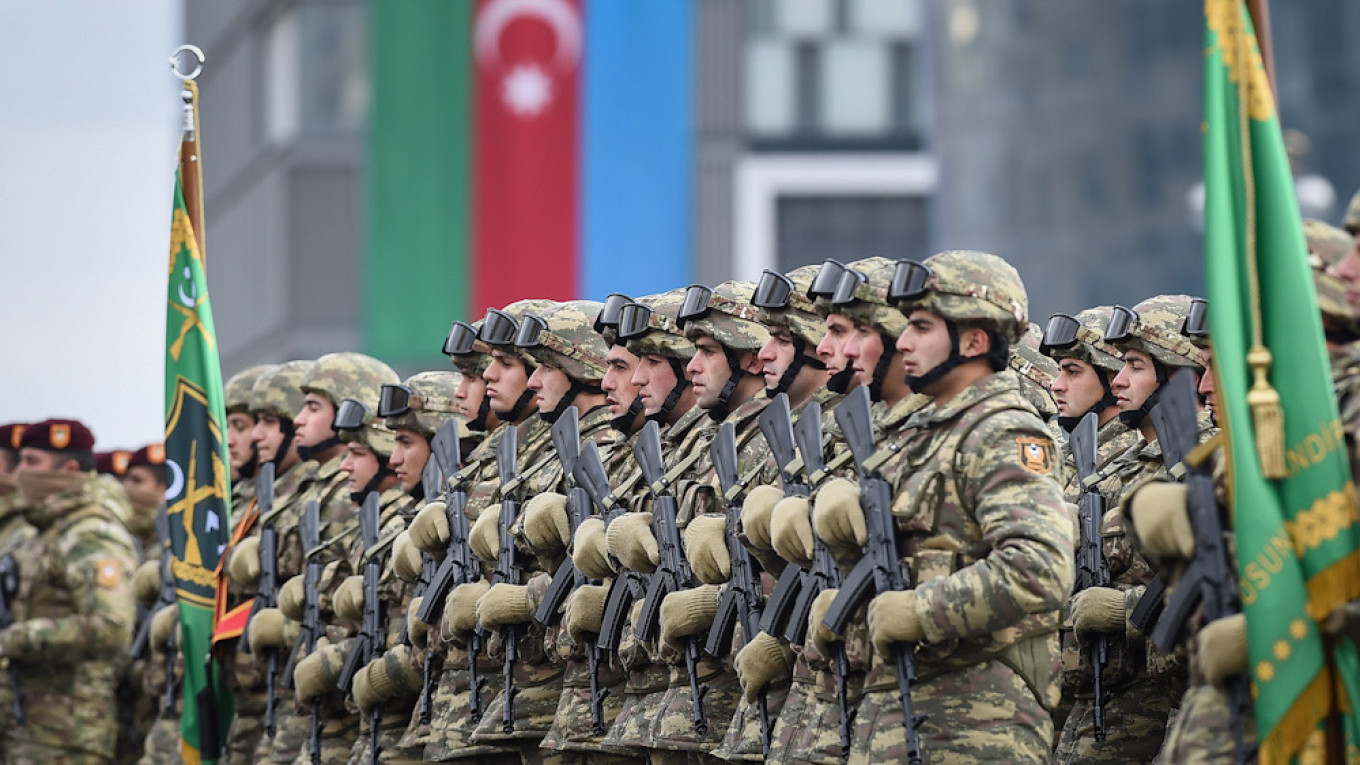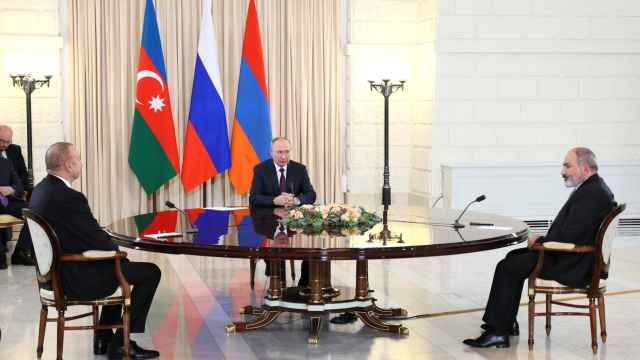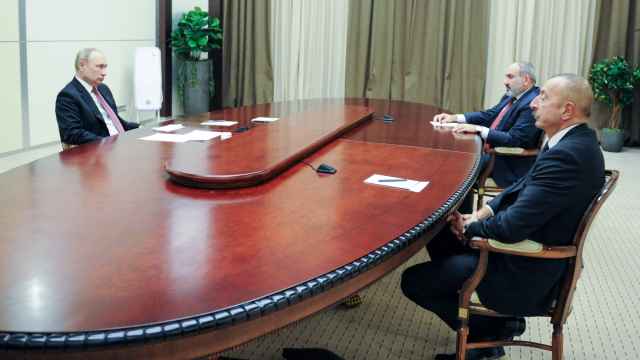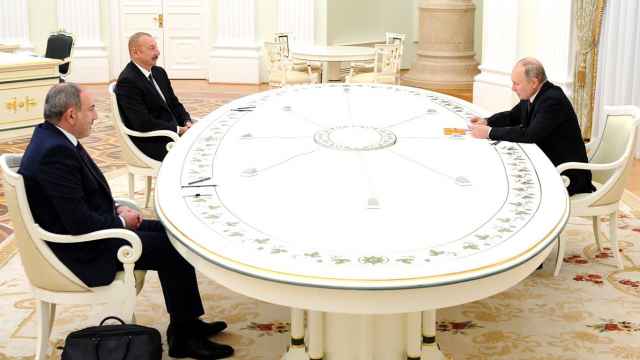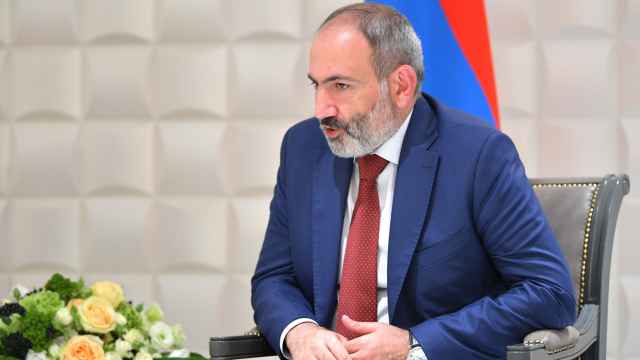Armenian Prime Minister Nikol Pashinyan said the conflict over Nagorno-Karabakh was still not resolved as he met the leader of his country's arch foe Azerbaijan in Moscow on Monday.
President Vladimir Putin hosted the heads of the two former Soviet states for a rare trilateral meeting and urged them to negotiate further steps in a November peace agreement that ended weeks of fierce clashes over disputed Nagorno-Karabakh.
But Pashinyan insisted Monday that key issues surrounding the conflict were in limbo and needed to be resolved immediately.
"Unfortunately, this conflict is still not settled," he told journalists after talks in the Kremlin that lasted nearly four hours.
Clashes over the mountainous region broke out in late September, reigniting fighting over the territory controlled for three decades by Armenia-backed separatists.
More than 6,000 people, including civilians, were killed before a Moscow-brokered peace agreement that saw Armenia cede swathes of territory it had controlled for decades to Azerbaijan.
Pashinyan said several issues remained unresolved including the question of the future status of Karabakh, an ethnic Armenian enclave recognized internationally as part of Azerbaijan.
He also said that the meeting did not render a solution to the "most sensitive and painful question" of prisoners of war.
Armenia and Azerbaijan exchanged their first prisoners in early December, more than a month after the peace deal was signed.
However it remains unclear how many more prisoners the two sides intend to exchange.
Joint working group
Azerbaijan's President Ilham Aliyev, whose better equipped army secured a victory, said on Monday that the Nagorno-Karabakh conflict "remained in the past."
The three leaders issued a joint statement on the Kremlin website announcing the creation of a trilateral working group to oversee the "unblocking of all economic and transport links" in the region.
The group will be jointly chaired by deputy prime ministers from the three countries and will hold its first meeting before January 30, the statement said.
At the start of the meeting, Putin thanked the two leaders for their cooperation with Russia's mediation efforts aimed at "stopping the bloodshed, stabilizing the situation and achieving a sustainable ceasefire."
Putin said over 48,000 people who fled Karabakh when the recent fighting broke out had returned since the peace deal came into force.
As part of the ceasefire agreement, Moscow deployed nearly 2,000 peacekeeping troops in the region. They will remain there for at least five years.
Russia has also set up a joint monitoring centre with Azerbaijan's ally Turkey to oversee the implementation of the ceasefire agreements.
The United States, France and Russia co-chair the so-called Minsk Group of negotiators that for years led talks on the Karabakh conflict but failed to achieve a lasting ceasefire.
Armenian separatists gained control of Karabakh following a post-Soviet war in the 1990s which left around 30,000 dead and displaced many Azerbaijanis.
Nagorno-Karabakh proclaimed its independence from Baku but its autonomy has not been recognized internationally, not even by Armenia.
A Message from The Moscow Times:
Dear readers,
We are facing unprecedented challenges. Russia's Prosecutor General's Office has designated The Moscow Times as an "undesirable" organization, criminalizing our work and putting our staff at risk of prosecution. This follows our earlier unjust labeling as a "foreign agent."
These actions are direct attempts to silence independent journalism in Russia. The authorities claim our work "discredits the decisions of the Russian leadership." We see things differently: we strive to provide accurate, unbiased reporting on Russia.
We, the journalists of The Moscow Times, refuse to be silenced. But to continue our work, we need your help.
Your support, no matter how small, makes a world of difference. If you can, please support us monthly starting from just $2. It's quick to set up, and every contribution makes a significant impact.
By supporting The Moscow Times, you're defending open, independent journalism in the face of repression. Thank you for standing with us.
Remind me later.


